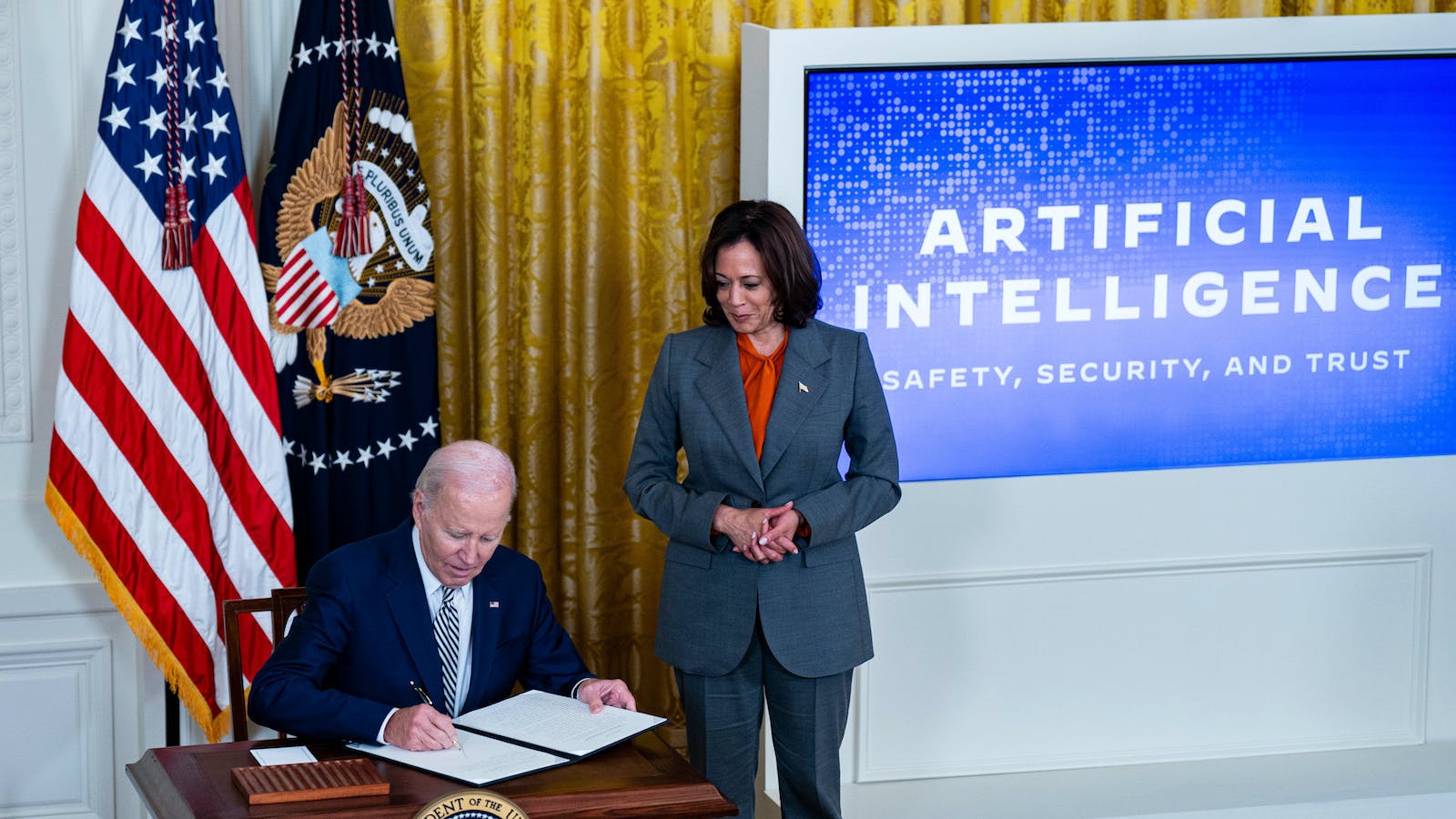In their most significant move regarding artificial intelligence (AI), the Biden Administration issued its executive order, which takes a whole government approach to regulating this technology. In this order, the Federal Trade Commission (FTC) is further empowered in its crusade against Big Tech. Unfortunately for consumers, this means targeting companies with the resources necessary to develop and bring these technologies to the market.
Part of the White House’s direction is that the FTC use its enforcement power to ensure competition in the AI industry. The language on the issue is fairly broad, saying, “In particular, the Federal Trade Commission is encouraged to consider, as it deems appropriate, whether to exercise the Commission’s existing authorities, including its rulemaking authority under the Federal Trade Commission Act, 15 U.S.C. 41 et seq., to ensure fair competition in the AI marketplace and to ensure that consumers and workers are protected from harms that the use of AI may enable.” This wording leaves the details up to the agency.
While the FTC has not yet released anything new on AI since the executive order, there are strong signals of their likely direction. FTC Chair Lina Khan wrote an op-ed published in the New York Times on how AI should be regulated. Some of these are positive and well within the FTC’s mandate, such as fraud prevention. Others are more reminiscent of recent FTC actions found meritless in court.
One of her biggest concerns is that existing tech giants already control the resources necessary to develop and maintain AI, including computing power and access to massive amounts of data to train generative AI. This is reflected in a later article on the FTC’s website, which discussed concerns about competition and generative AI. While specific companies and actions were not named in either article, her problems reflect the change in the FTC’s approach to antitrust regulation, focusing on the structure of the market, as described in Khan’s “Amazon’s Antitrust Paradox.” So far, the results of that approach have mostly been attacks on big tech without solid support for consumer harm, resulting in a string of court losses.
In their zeal to overregulate big tech, Khan and the FTC are presuming the abuse of these technologies by major tech companies to reduce competition while generative AI is still developing.
The FTC is concerned that not only will large tech companies have an initial advantage when developing AI tools due to the high cost of creating and maintaining them but that they will work to keep competition out of the market through various means, including bundling products to maintain a high share of the market.
While it remains to be seen what the market for AI products will look like, the assessment of significant companies having a disproportionate advantage in developing generative AI because of the high cost is essentially correct.
The initial investment is significant, especially as companies build the infrastructure for AI. According to the FTC’s arguments, the amount of computational power and data involved in creating a new large language model is massive and out of reach for all but the existing major players.
If only big companies can develop this technology, why would we take steps to make that more difficult and risk undermining what currently makes generative AI possible?
Just because the entry costs are high now does not mean that will always be the case or that current dominant players will stay on top. Previous significant players in tech industries have seemed unbeatable until they weren’t. Soon, Yahoo was the dominant search engine, only to be overtaken by Google because of innovations in how internet searches functioned, leading to more valuable results. This happened not because of antitrust regulation but because of innovation and creating a better product for consumers.
The Administration giving a green light for the FTC to further regulate AI products is not a surprise, and neither is the FTC’s assumption that big tech will be bad actors as the technology develops. Regardless of predictability, lawmakers should avoid stopping innovation before it can begin.
You can also read this article in full at the Economic Standard here.
Trey Price is a technology policy analyst for the American Consumer Institute, a nonprofit education and research organization. For more information, visit https://www.theamericanconsumer.org/ or follow us on Twitter @ConsumerPal.

